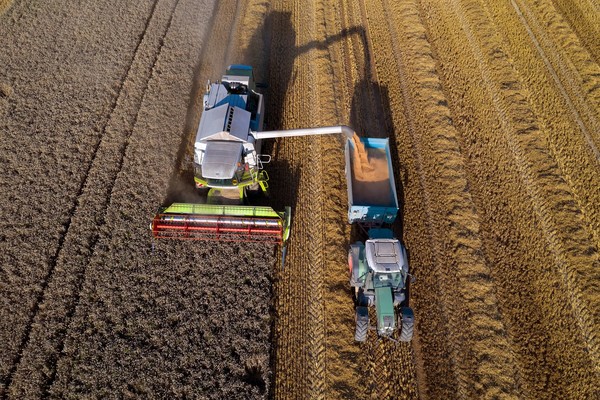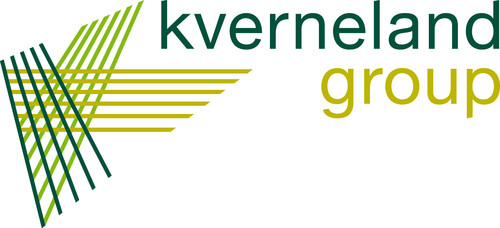
ATLAS, an Agricultural Interoperability and Analysis System
The Horizon 2020 project “ATLAS” aspires to overcome constraints concerning interoperabillty of data systems. Its overall goal is the development of an open digital Network through which information and services become available to the end-user in an easy, protected and automated manner
Modern smart agricultural machines, sensors and data processing services have, already for decades, assisted farmers, service providers and authorities by providing an abundance of information that help optimize the farming and reporting practices. However, to date, the interoperability of these systems is limited and, so is their flexibility to adapt to the specific needs of individual users.
The Horizon 2020 project “ATLAS” aspires to overcome these constraints and its overall goal is the development of an open digital Network through which information and services become available to the end-user in an easy, protected and automated manner. The ATLAS Network will overcome existing interoperability hurdles by enabling data sharing between agricultural machinery, sensor systems and data analysis tools with the aim to make field operations more insight-driven, and potentially more productive and efficient. One of the central objectives of the ATLAS Project is to improve the user experience by extracting new knowledge using existing Original Equipment Manufacturer (OEM) platforms and machinery with the ultimate goal to optimize the farm’s performance.
Using the ATLAS Network, the full data potential will be realised and demonstrated within a multitude of pilot studies across Europe. Through seed funding, innovative European companies will be attracted to provide new services through the Network to drive cross-country interoperability. Around these pilots, namely “Innovation Hubs”, a network of farmers, service providers, researchers and policy makers, will be established. In the future, these Innovation Hubs will serve as business incubators around which involved stakeholders will carry on expanding the functionalities of the ATLAS Network.
Agricultural Machinery Manufacturers’ role in ATLAS
The industry, teamed up via the global organisation Agricultural Industry Electronics Foundation (AEF), is a key partner in the ATLAS Project. AEF’s engagement in the ATLAS Project, not only continues the legacy of safe and secure connected machines, but also ensures global availability of the solutions to avoid parallel approaches between different regions. With the focus being placed on the end-user expectations for data exchange between ag systems, and leveraging industry knowledge, the AEF has already developed four commercially viable use cases.
These use cases were carefully developed in order to cover all key foreseeable aspects of interoperability in the ATLAS Network. This helps achieve integration at all layers among existing and future service providers in the Network. In addition, such horizontal use cases enable IoT innovation via standardization and interoperability. Standardization and interoperability have an impact on the entire sector. End-users will still source solutions for specific problems. Such targeted solutions will be easily implemented by building on the fundamental functionalities defined in the following use cases: Machine Tracking, this use case aims to realise the interoperability between machines of different OEMs and Farm Management Information Systems (FMIS). In this way, the user can determine the routes the machine can use, determine crop performance and collect up-to-date maintenance records of the machine; online Task Management, this use case aims to reduce time and effort for managing fieldwork. Task orders planned in the FMIS can be exchanged with the machines of different OEMs. Results are also transferred back to the FMIS allowing for real-time documentation of results; infield Sensor Connection, this use case aims to help farmers make informed decisions by providing them overviews of field information, e.g. weather data, topography of fields, soil condition, enabling real-time analysis of data from different in-field sensors and service providers; field Data Management, this use case involves the interoperability of different machines and in-field sensors providing real-time information on running processes. Yield data coming from different OEM harvesting machines will be streamlined into the FMIS of individual users.
ATLAS High Level Architecture
The main result to date is the development of the High-Level Architecture. The Architecture developed enables the seamless data exchange between all possible data generators and consumers in the agricultural business. As clearly stated in the relevant CEMA paper, all industry partners in the AEF team agree that the OEM data platform must be the first access point for retrieving the data and not directly at the machine level (Fig. 1). This ensures that OEMs continue to comply with all EU safety and security regulations without compromising the data rights of the farmer.
The ATLAS Network is built upon a service-oriented architecture which enables the connection of sensor networks, data platforms and data processing services in a consistent and easy way. In order to bridge existing interoperability gaps, ATLAS will deploy a type of service-mesh architecture. This means that every participant remains autonomous and responsible for their own proprietary services. These so-called ‘Data Services’ follow a template with pre-defined layers and a number of supported data formats to meet the requirements of different use cases. This renders the ATLAS Architecture a truly scalable framework for the whole ag sector.
Conclusions
Through the ATLAS Project, the industry aims to develop a blueprint of an interoperability ecosystem for the ag sector, thus avoiding the farmer having to resort to a multiplicity of systems, models and interfaces. The farmer can then utilise all data sources to be more productive in their daily operations. Whilst ATLAS is an EU-funded project, the intention of AEF is to ensure that the solutions developed are suitable for implementation globally.
This project has received funding from the European Union’s Horizon 2020 research and innovation programme under grant agreement No 857125.








